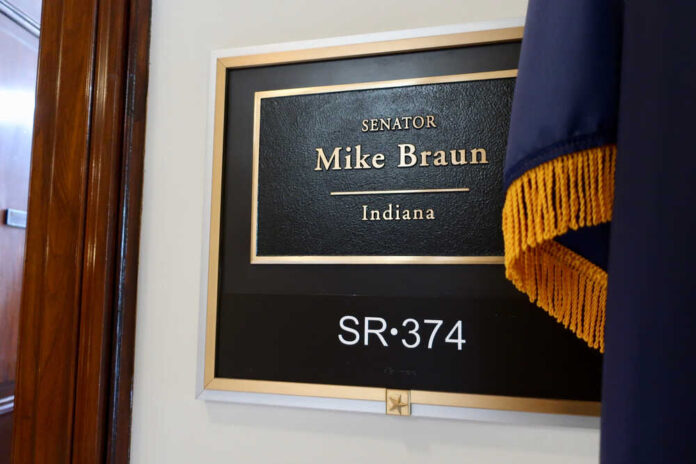
Republicans are targeting the increasingly-popular environmental, social, and governance (ESG) investment practice, which they allege is a ploy to advance left-wing political ideas.
The practice has been criticized by conservatives for what they allege is implementing Democrats’ ideas in the corporate sector. ESG’s operators insist that the effort is non-partisan, but Republicans disagree strongly.
Furthermore, Republicans believe that there are wider implications than simply partisan bias. The use of such programs say some Republicans in Congress, may violate anti-monopoly statutes.
A December 2022 statement by the Republicans on the House Judiciary Committee, including Reps. Jim Jordan (R-OH) and Matt Gaetz (R-FL), asserted that ESG was “at its heart, radical partisan activism masquerading as responsible corporate governance.”
The issue was highlighted recently by Sen. Mike Braun (R-IN), who introduced a bill to overturn a Biden Administration rule which allows retirement plans to utilize ESG in their financial decisions. This effort is also joined by a lawsuit by 25 states against the rule.
Today, I joined more than 100 organizations and State Treasurers in urging Congress to overturn the Biden administration's dangerous ESG rule through the Congressional Review Act. (1/3) pic.twitter.com/hUVcdFYfZ9
— Arizona Treasurer Kimberly Yee (@AZTreasurerYee) February 7, 2023
In particular, Braun cited studies that demonstrate ESG practices produce lower investment returns than other investment strategies.
Furthermore, other elements of the Biden Administration are using ESG principles. The Securities and Exchange Commission is considering a change to a March 2022 rule that would require that companies held by the public would have to create a plan to adapt to the effects of climate change.
Braun was joined by Rep. Byron Donalds (R-FL), a former financial advisor at Wells Fargo. Donalds said that the government or left-wing corporate policies should not set “arbitrary standards on being a good citizen. That’s essentially what ESG is.”
One recent example pointed to by conservatives is an effort by the government of Sri Lanka to utilize policies similar to ESG in shaping their economy. This resulted in a nationwide economic collapse and national protests. The country is currently in economic freefall and faces higher food prices.
Similar practices in South Africa have resulted in serious economic consequences.
The Republican push regarding the corporate practice will likely grow as the new Congress gets underway.










